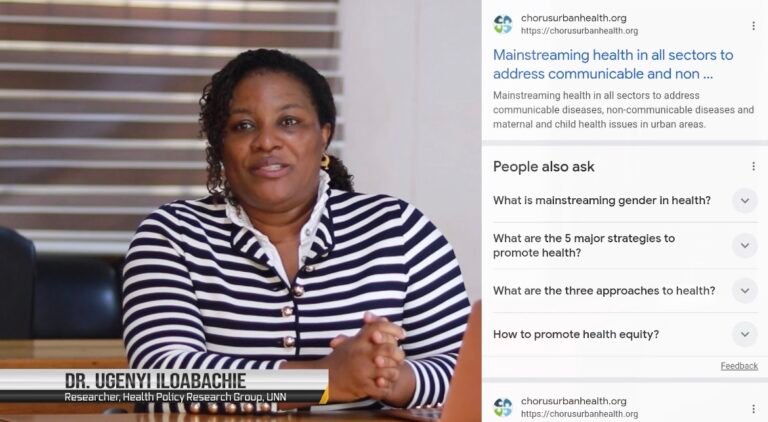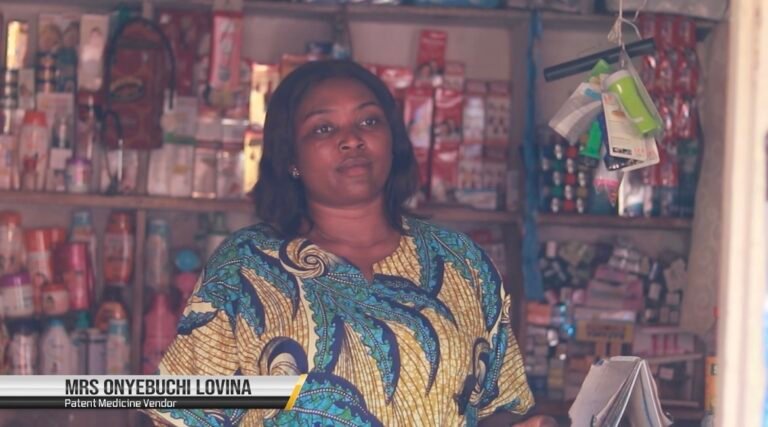Strengthening regulatory mechanisms in the health sector is crucial for delivering high-quality healthcare under the Health Sector Renewal Investment Initiative (HSRII), a key component of President Bola Ahmed Tinubu’s Renewed Hope Agenda. However, healthcare services in Nigerian urban slums are often substandard, primarily provided by informal healthcare providers (IHPs) that are poorly regulated or unregulated.
These IHPs include patent medicine vendors (commonly called chemists), traditional birth attendants (TBAs), herbalists, and bone setters, among others. Unfortunately, because these slums are located within urban areas, they are often seen as enjoying urban privileges, which is why targeted health interventions for deprived locations focus less on them, especially when compared to rural areas.
Over the course of five years, the Health Policy Research Group at the University of Nigeria (HPRG), with support from the CHORUS Urban Health Consortium, conducted research that highlighted serious health issues in urban slums. These issues include a high prevalence of diseases and deaths, which are connected to poor health habits, poverty, illiteracy, inadequate primary healthcare services, and a high patronage of unregulated IHPs. For example, a study found that out of 238 IHPs in eight slums, only about 9% had adequate knowledge of hypertension’s causes and symptoms. Yet the IHPs attracted more clients than formal health providers.
The alarming aspect of these issues is that more than 55% of Nigeria’s urban population resides in slums, a number expected to increase. Without measures to ensure access to quality healthcare for slum residents, Nigeria’s health outcomes could decline significantly. Tackling these problems requires a combination of strategies, such as enhancing regulatory oversight of the IHPs to ensure they are effectively integrated into the formal health system and adequately monitored. This is the approach now adopted by the Enugu State Government, which has created an Urban Health Unit within its healthcare administration, supported by HPRG and CHORUS Urban Health Consortium.
The Urban Health Unit in Enugu State, Nigeria
For more than twenty years, Traditional, Complementary, and Alternative Medicine (TCAM) has played a crucial role in Nigeria’s healthcare system, reflecting the social and cultural factors influencing healthcare provision. Over time, TCAM has evolved across various environments and practices. In Enugu State, specific health challenges in urban slums—highlighted to policymakers by Prof. Ikechukwu Obi, the former Health Commissioner—led to the expansion of the TCAM Department to establish an Urban Health Unit (UHU). The Enugu Health Ministry officially announced this development on 2 May 2025, which also appointed desk officers from the TCAM and Pharmaceutical Services Departments to oversee the new unit.
The UHU’s operational scope has been determined through research and stakeholder validation, including input from IHPs. The UHU will help enforce operational scope for IHPs, collect accurate activity data of the IHPs, and establish referral links between IHPs, primary health centres, and hospitals. Additional UHU activities include training IHPs and offering community support and supervision. HPRG has collaborated with various stakeholders, including IHPs, to develop protocols and Terms of Reference (ToR) for these activities, and is working with UHU desk officers to understand and shape the operational scope continuously.
To support the unit’s launch, HPRG, through the CHORUS Project, donated vital office equipment and consumables to the UHU. These included desks, chairs, laptops, printers, filing cabinets, and ink cartridges.
What the future holds for the Urban Health Unit in Enugu
Healthcare stakeholders in the State have commended the UHU initiative as a vital strategy for enhancing health amid fast urbanisation. They emphasise its role in demonstrating the significance of research evidence in urban development, a topic that still lacks sufficient national attention. For instance, unlike rural health, urban health was not explicitly addressed in Nigeria’s health sector strategic blueprint. It is hoped that Enugu’s experience will provide important lessons for the whole country.
The State Primary Health Care Development Agency (SPHCDA), under Dr Ifeyinwa Ani-Osheku’s leadership, is dedicated to the success of the UHU by committing to enhance the integration of IHP data into the District Health Information System (DHIS2). This will be achieved by deploying monitoring and evaluation officers at the local government level. Furthermore, the Enugu Health Ministry has also pledged, through the UHU, to collaborate with the Pharmacists Council of Nigeria (PCN) to make the renewal of licences for patent medicine vendors (PMVs) contingent on data reporting.
These targeted efforts to improve data collection will produce high-quality evidence to monitor the performance of the health providers, which is crucial for expanding this linkage to other areas, including rural communities. It’s also encouraging to see that Professor George Ugwu, who has assumed the role of the new Commissioner for Health, will be dedicated to maintaining the ongoing success of the UHU.
Conclusion
The official launch of the Urban Health Unit within Enugu State Ministry of Health marks a significant step towards establishing formal connections between the official health system and informal healthcare providers. It initiates a structured, regulated, and data-driven partnership aimed at safeguarding the health of residents in urban slums, who are often underserved and vulnerable.
HPRG and the CHORUS Urban Health Consortium will continue to provide essential technical support and monitor performance. At the federal level, HPRG recommends that future updates to the Health Sector Renewal Investment Initiative and its strategic plan should recognise the specific healthcare challenges of urban slums. This is expected to result in targeted urban health strategies that address Nigeria’s rapid urbanisation, which is among the fastest in the world.
Acknowledgment
- Enugu State Ministry of Health
- Enugu State Primary Health Care Development Agency
- CHORUS Urban Health Research Consortium
- Health Policy Research Group, University of Nigeria
Authors
- Iheomimichineke Ojiakor
- Dr Prince Agwu
- Prof Chinyere Mbachu
- Prof Obinna Onwujekwe
This article is in commemoration of World Cities Day, observed every 31 October, which aligns with Sustainable Development Goal 11, aiming to make cities and human settlements inclusive, safe, resilient, and sustainable.




